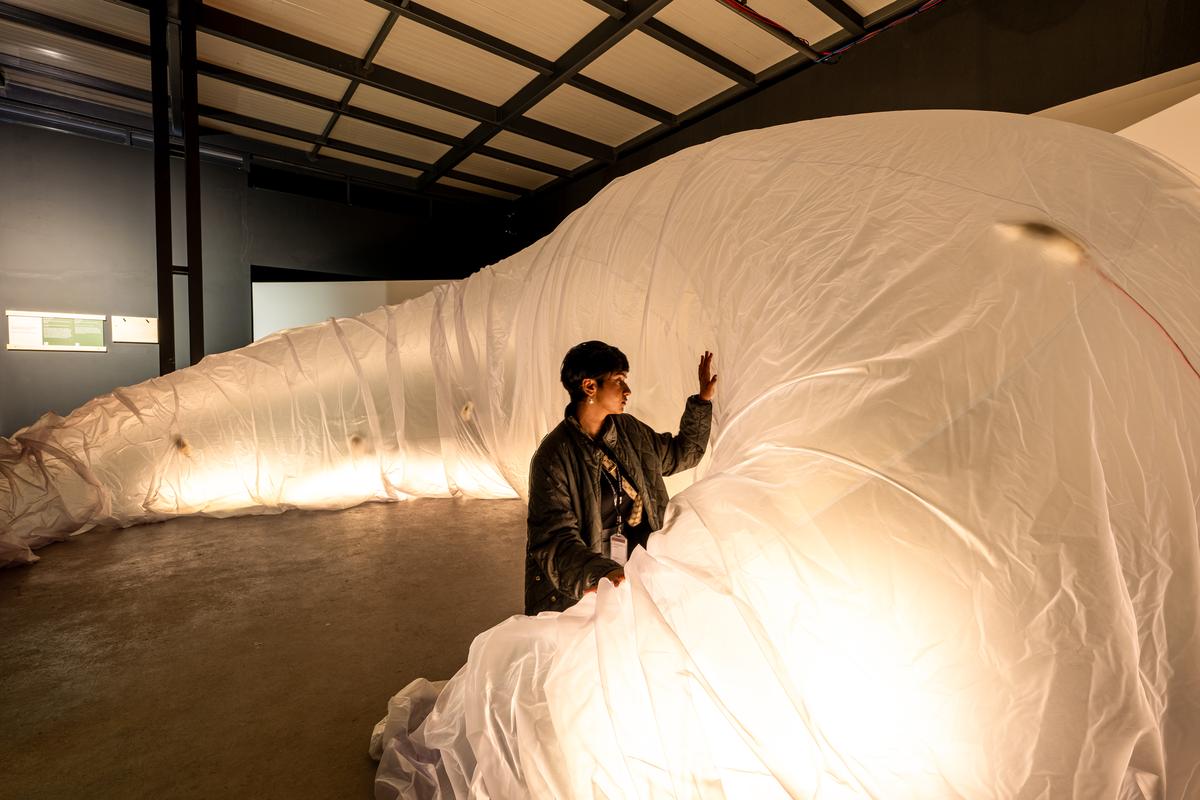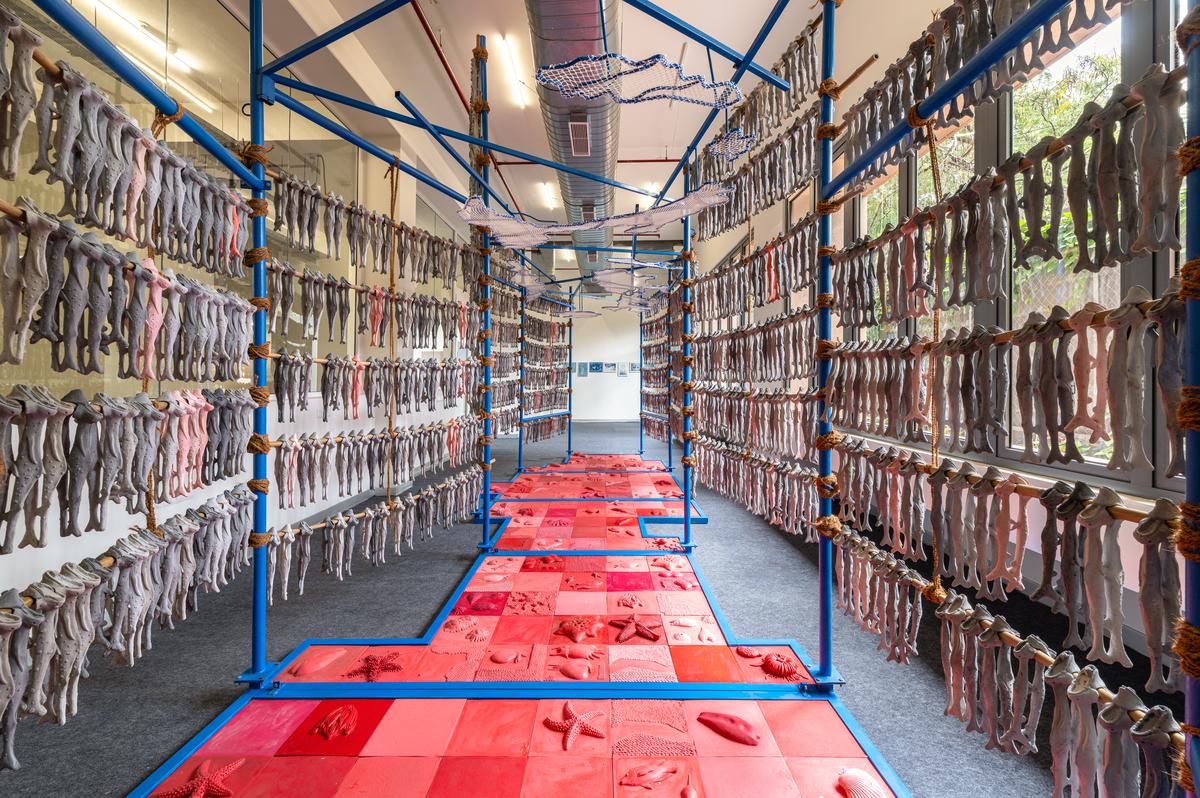
Long Hanging Fruits, an installation by Indonesian artist Elia Nurvista about the palm oil industry
| Photo Credit: Special arrangement
In the 1820s, French scientist Nicolas Clément introduced the term calorie. In the two centuries since, human beings’ and society’s relationship with food has changed drastically. Today the study of food is a complex subject that comprises not only nutrition and agriculture, but also has geopolitics, technology, climate change, caste and gender under its umbrella.
Science Gallery Bengaluru unveils a year-long exhibition titled Calorie, that uses the lens of art to engage and reflect on these subjects. Who grows your food? Who gets to eat it? What does it do to your body? And, how much waste does it create? All these dialogues and more are being discussed by this exhibition, that is supported by the Gates Foundation, British Council and MacDermid Alpha Electronics Solutions.
“We have a strong cultural relationship to food, and food is also an object of scientific research,” says Dr. Jahnavi Phalkey, the founding director of the Science Gallery Bengaluru. “Discussions about food have gained more currency in every domain of our life nowadays. Topics such as the science behind cooking, nutrition, Indian diet fads, and so on. As an informed citizen, whom do I take seriously?” The exhibition is an invitation to look beyond what is on our plate and to interrogate the systems, values, and choices that feed us.

Stuff Change, a multisensory inflatable installation about stomachs by
Denisa Pubalova and Lea Luka Sikau
| Photo Credit:
Special arrangement
Some highlights from the exhibition
Spread across two floors of the gallery, Calorie sees works by both international and Indian artists. Parag Kashinath Tandel’s sensory installation, Food as an Archaeological Site: How to cook Bombay Duck looks at the fish, and the Koli fishing community of Mumbai, its migration patterns and pollution. The Bombay duck or Bombil fish holds relevance to the region’s history. The artist uses materials like fishing gear, silicon rubber and dental plaster to create the work.
Rajyashri Goody’s Don’t Lick It All Up looks at the relationship between food and caste. Using ceramics the artist recreates food, such as rice, meat and even earth as food , that is scavenged or begged for. It is accompanied by Omprakash Valmiki’s book Joothan, and recipes extracted from Dalit memoirs.

Food as an Archaeological site: How to cook Bombay Duck, by Parag Kashinath Tandel
| Photo Credit:
Special arrangement
Orijit Sen’s Mapping Mapusa Market, is an interactive installation about Goa’s historic Mapusa Market. The Goa-based artist showcases the vibrant market through the mixed media work. Visitors can pick up questions and puzzles, the answers to which are in the installation. The Museum of Edible Earth is a project by artist titled Masharu. It looks at the communities around the globe who eat clay or soil. The exhibit has bottles of various clay varieties that people eat. In Ragi.net artist Surekha explores how Bengaluru’s ragi-growing land has now been converted to a tech capital. She takes discarded keyboards and installs ragi plants in them.
Dr. Kiran Mazumdar-Shaw, who is a board member of the gallery says, “Calorie urges us to rethink how we use resources, grow crops, and adapt to climate change. Like our past work on carbon, it’s a space for young minds and experts to question, experiment, and shape ideas that can influence policy. With the upcoming food lab, we aim to spark curiosity, inspire innovation, and drive a healthier, more sustainable future.”
In the coming year, Calorie will also see food festivals, films screenings, workshops and lectures.
The Calorie exhibition will run from August 2025 to July 2026. Entry free, Wednesday to Sunday, 10 AM to 6 PM. At Bellary Road, Ganganagar. For more details, visit bengaluru.sciencegallery.com
Published – August 19, 2025 01:27 pm IST